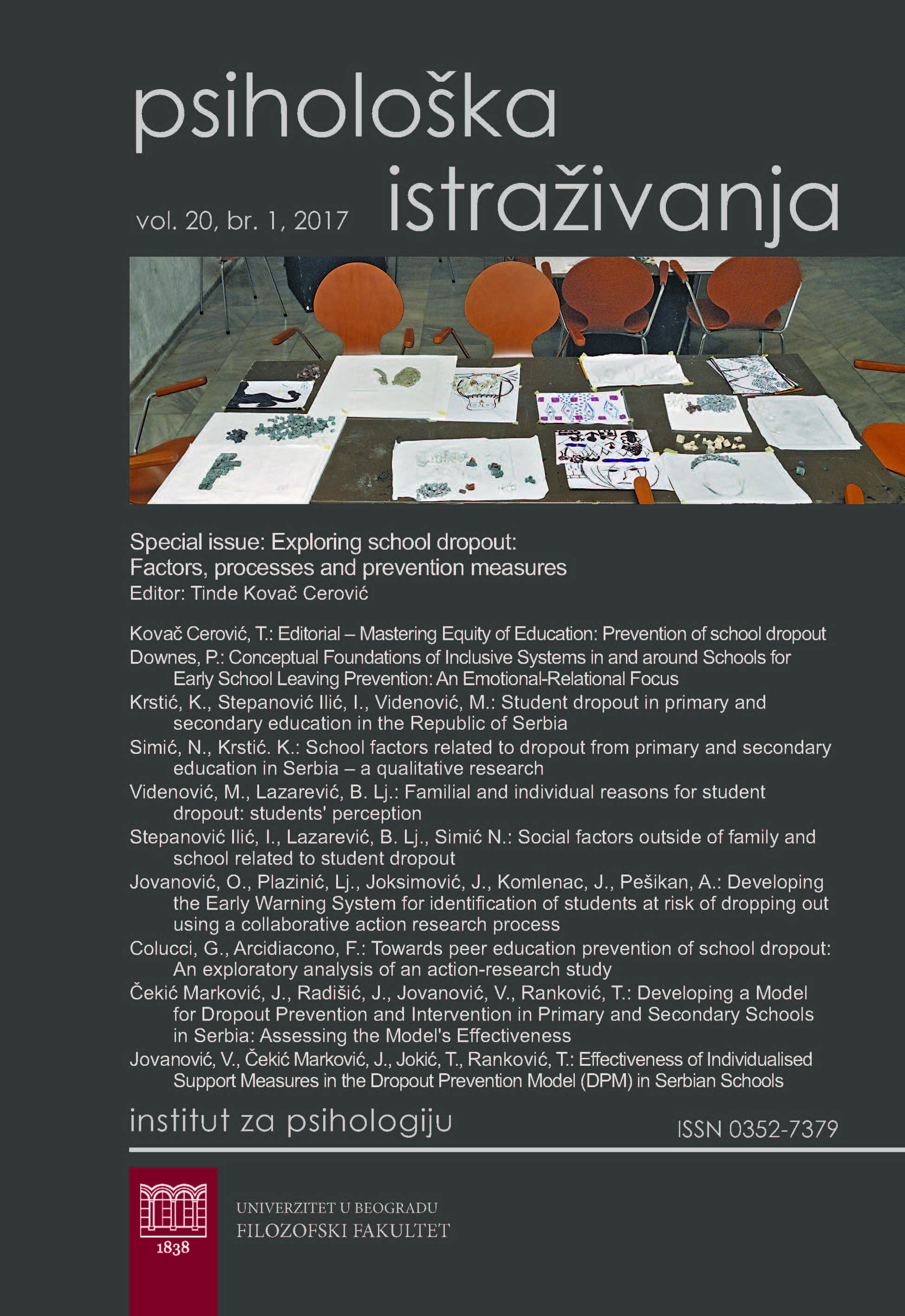Conceptual Foundations of Inclusive Systems in and around Schools for Early School Leaving Prevention: An Emotional-Relational Focus
Conceptual Foundations of Inclusive Systems in and around Schools for Early School Leaving Prevention: An Emotional-Relational Focus
Author(s): Paul Downes Subject(s): Psychology, Educational Psychology
Published by: Филозофски факултет, Универзитет у Београду
Keywords: Inclusive Systems; Early School Leaving; Resilience, Bullying
Summary/Abstract: Against the background of the EU2020 headline target of reducing early school leaving to 10% across Europe, this article examines the conceptual foundations of the understanding of inclusive systems for early school leaving prevention that has emerged in EU policy documents and research reports in recent years. Traditionally, inclusive education has referred to a focus on children with special educational needs. However, this conceptual review examines how inclusion is increasingly being examined in broader terms.This review seeks to critically reconstruct foundational understandings of systems and resilience in developmental and educational psychology. A systems focus on inclusion needs to address the neglect in psychology of system blockages and power imbalances. Resilience is typically framed as the capacity of the individual to navigate their way to environmental resources. This places the onus of accessibility onto the individual’s efforts rather than a concern with responsive systems accessible to marginalised groups. A concern with inclusive systems goes beyond not only the well-established framework of individual resilience in developmental psychology, but also beyond its expansion into resilient systems, as these omit a focus on outreach and multidisciplinary teams in systems of care for integrated services. Common principles for a framework of inclusive systems include children’s voices, equality and non-discrimination, parental involvement that is integrated holistically with family support, and lifelong learning principles for schools. Illustrative examples of these principles for reforming authoritarian teaching and discriminatory bullying, for opening schools to the local community and for targeting those with highest levels of need are highlighted.
Journal: Psihološka istraživanja
- Issue Year: 20/2017
- Issue No: 1
- Page Range: 9-26
- Page Count: 18
- Language: English

